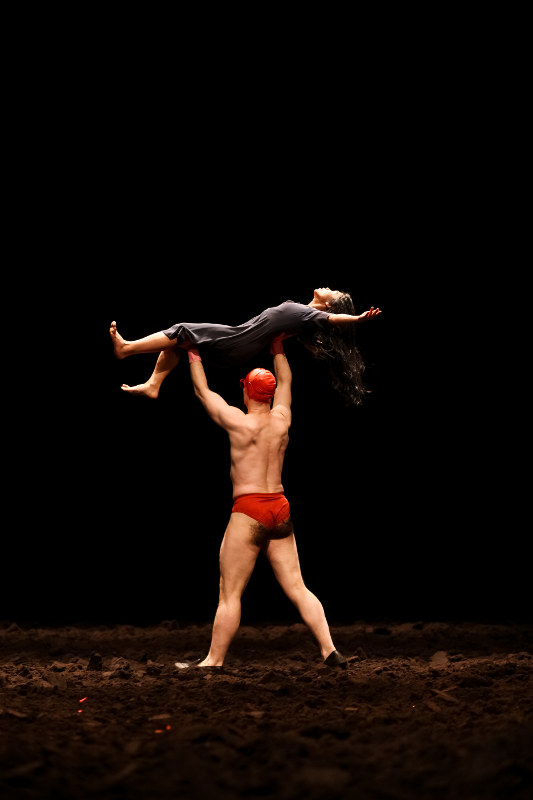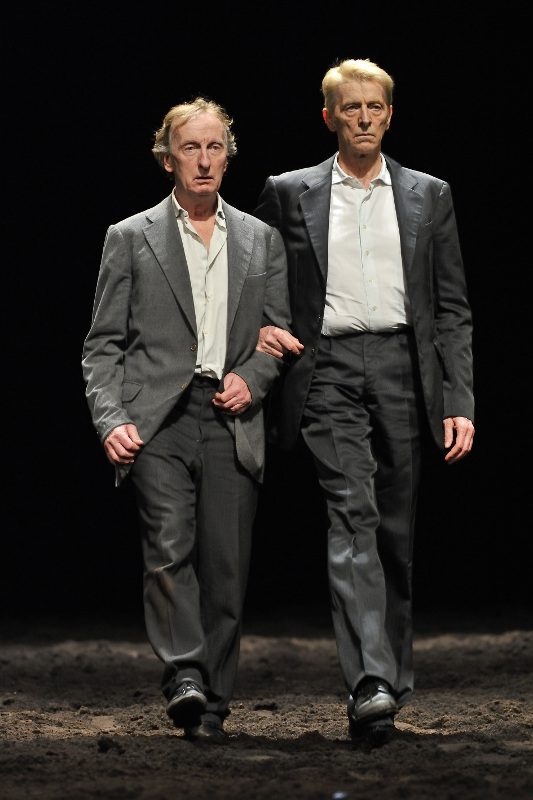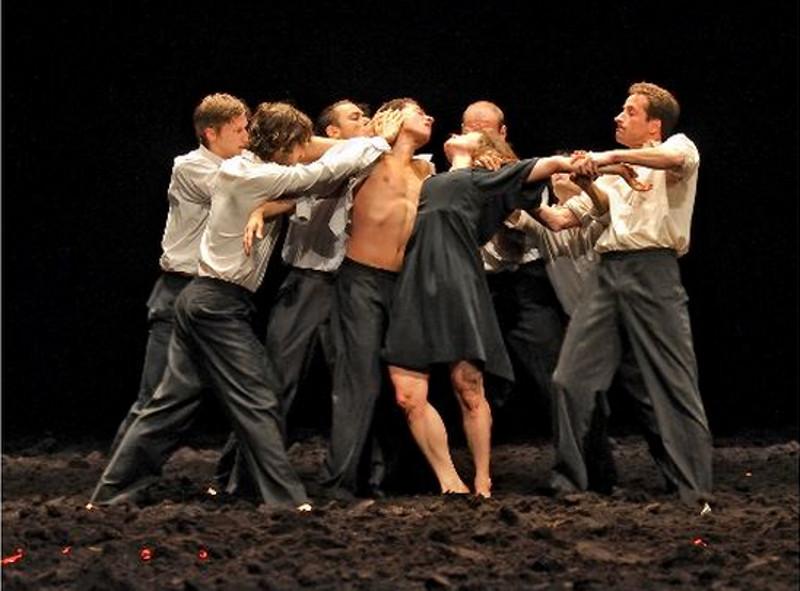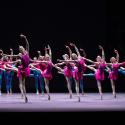Retrospectives are difficult in dance, and for Pina Bausch's brand of Tanztheater, even more difficult. A great deal of her oeuvre's impact derives from the special atmosphere of her Wuppertal company, whose dancers were devoted to her and to each other, in many cases staying for their whole careers. After Bausch died in 2009, the first thought was that the company would have to wind down too, but after the great, supposedly final, tour of 2012, minds changed and now Tanztheater Wuppertal is back at Sadler's for the third time in as many years, this time with two pieces never before performed in the UK. I don't know how long they can keep doing this, but it's a joy while it lasts.
Both works are from Bausch's great period in the 1980s, close in time to 1980, Nelken and Two Cigarettes in the Dark, all of which have been seen in London in the last decade. Last night the run opened with 1984's Auf dem Gebirge hat man ein Geschrei gehört, which the programme translates as "in the mountains a cry was heard". But the title comes from a motet by seventeenth-century German composer Heinrich Schütz, and it's actually a verse from Luther's Bible, Matthew 2:18, where, after telling of the slaughter of the innocents by King Herod, the Evangelist quotes Jeremiah 31:15: "A voice was heard in Ramah, wailing and loud lamentation, Rachel weeping for her children; she refused to be consoled, because they are no more." This, then, is not the isolated cry of a lonely wanderer whipped away by the uncaring wind, but a great weeping and wailing, for a great tragedy. The inclusion in the soundtrack of Billie Holiday's searing protest song 'Strange Fruit' only drives home the point.
Not that Auf dem Gebirge is unremittingly bleak - far from it - but the title tells us that its gaze will be more drawn to cruelty and oppression than, say, 1980. Even the set suggests the change: for 1980 the theater is carpeted in green turf and lit by sun-lamps; for Auf dem Gebirge the air is filled with fog, and the floor has changed to soft brown earth, which is a little more heavy going underfoot and hides its promise of new life beneath, rather than on, its surface. As often with Bausch, there is a focus on gender dynamics and it doesn't look like a terribly happy world for women, this one: they are compelled by a rapacious man to "say 'Uncle'! say it!', kissed against their will, have their hair pulled and turned grey, are cut till they bleed and then bandaged into zombie-like immobility. But then again, who'd want to be the big chap (Michael Strecker) in the red Speedos and swimming cap who has to blow up balloons till they burst in his own face? He makes a lot of noise at the beginning, but by the end it's become clear that the hero is tiny Ditta Miranda Jasjfi (pictured right with Strecker), who endures what's thrown at her with cool detachment, and quite a lot of grace.
As often with Bausch, there is a focus on gender dynamics and it doesn't look like a terribly happy world for women, this one: they are compelled by a rapacious man to "say 'Uncle'! say it!', kissed against their will, have their hair pulled and turned grey, are cut till they bleed and then bandaged into zombie-like immobility. But then again, who'd want to be the big chap (Michael Strecker) in the red Speedos and swimming cap who has to blow up balloons till they burst in his own face? He makes a lot of noise at the beginning, but by the end it's become clear that the hero is tiny Ditta Miranda Jasjfi (pictured right with Strecker), who endures what's thrown at her with cool detachment, and quite a lot of grace.
Bausch's work is always about being human, and Auf dem Gebirge, in common with her other work from this period, mixes plenty of absurdity, beauty and even joy, into its portrait of the vagaries of existence. Look at Dominique Mercy and Lutz Förster (pictured below left) doing the arm-in-arm shuffle, for all the world like a tragicomic German version of Morecambe and Wise; Thusnelda Mercy in an elegant dress soaring like a child on a carousel as a live brass band plays rum-te-tum; a bunch of men in grey trousers and white shirts racing around and diving in the muck like so many schoolboys on sports day. Smoke hangs in the air and is caressed into evanescent sculpture by a lush swinging of velvet curtains: gorgeous.
 Even when everyone is dashing about madly, and you know they're not waving but drowning because they're pretending the earth is really the sea right at this minute, Bausch and her dancers wring smiles from you with their capers. Afterwards, your conscience has twinges: haven't we worked out that this is about systematic oppression and despair, after all? To drive home the paradox, the music sounds like a joyful wedding march - it's even by Mendelssohn - but it's actually the "War March of the Priests" from his incidental music to Athalie. So which is it, marriage: an instituation of patriarchal oppression or quite jolly, really?
Even when everyone is dashing about madly, and you know they're not waving but drowning because they're pretending the earth is really the sea right at this minute, Bausch and her dancers wring smiles from you with their capers. Afterwards, your conscience has twinges: haven't we worked out that this is about systematic oppression and despair, after all? To drive home the paradox, the music sounds like a joyful wedding march - it's even by Mendelssohn - but it's actually the "War March of the Priests" from his incidental music to Athalie. So which is it, marriage: an instituation of patriarchal oppression or quite jolly, really?
Like life - and marriage, for that matter - Auf dem Gebirge makes you run a gamut of emotions, and no two people's experience will be the same. But like life again - and for the lucky ones, marriage - it's quite the ride. Bausch was a genius; this is vintage work from one of her best periods, and it's fabulous. Go see.
- Auf dem Gebirge hat man ein Geschrei gehört is at Sadler's Wells until 18 April. Tanztheater Wuppertal perform a second work from the 1980s, Ahnen, at the Wells 23-26 April.














Add comment